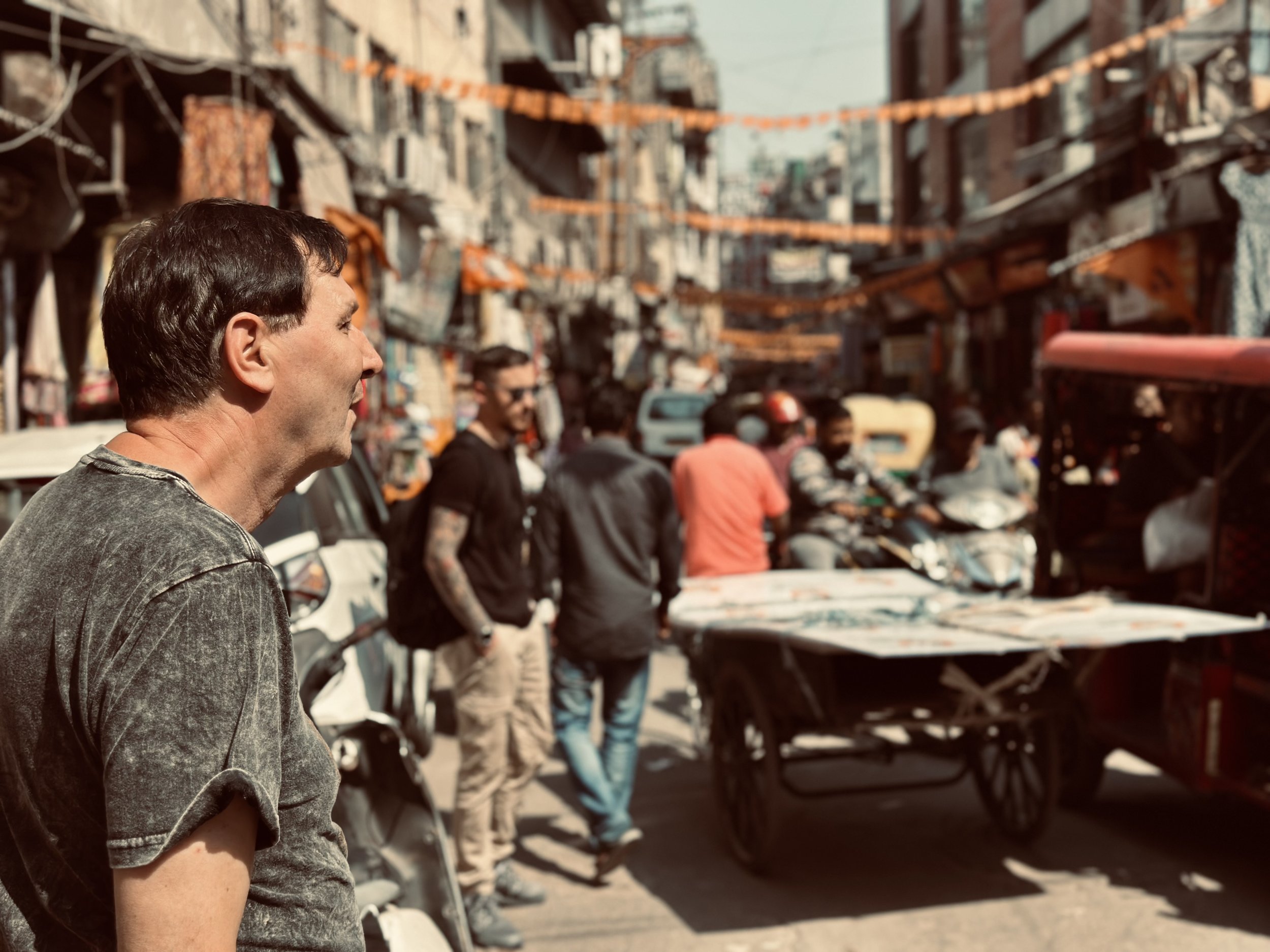
The True Cost Of
A Cappuccino
In Bangalore!
..and how an idea came to be.
..and how an idea came to be!
In the shadows of the huge Iskcon temple in Bangalore, along the maze of alleyways near by you will find numerous incense factories many with impressive names and long heritages. From the villages around the city small trucks bring bundles of raw incense that has been hand rolled in essence by home workers. In the factories the incense is dipped in fragrance, counted in to bundles of ten or twenty sticks and packed in branded packaging. You might think this is a mechanical process, but actually its all done by hand. On a recent trip to Bangalore I met the some of the workers packing incense sticks. These guys and girls sit on the floor counting and packing incense sticks worked so fast there hands were a blur. Put your hand in front of your face and shake it up and down as fast as possible, that's how fast and hard they were working. I asked how much they were paid.. 150 - 200 Rupees a day - more than twice the Indian minimum wage, but still only about £2 a day.
Apparently there are a million of them in India. So I went for a coffee with the educated and philosophical owner of the incense factory, they have trendy coffee shops in downtown Bangalore called "Coffee Day" and sipping an excellent cappuccino - cost 150 rupees or expressed another way one days incense packers wage. I asked if he ever felt guilty about this fact. Yes and no, on one hand they are paid enough to live on and most workers earn double what they might earn outside the city. They certainly seemed happy, and working conditions are good.
On the other hand they could only dream about sipping a skinny latte, and living standards are at best basic. I asked him if any workers escaped the low pay trap, yes.. one or two he said. The ones who had some education and crucially had English language. They could get a job in a Coffee Day or MacDonald's and move up in to the next economic league.
It really is a very unequal world we live in, much more nakedly exposed in India than here. Here is my amature and possibly naive analysis for what it's worth: It seems to me there are four basic economic classes in India. Firstly the physical workers (often skilled) who earn £1 or £2 a day and live in a social class that traps them there. This is about 70-80% of Indians. Secondly if you are educated and speak English you may earn £10 - £20 a day, and live in a middle class that affords a pretty good standard of living. But only because there is a plentifully supply of £1-£2 a day souls to cook and clean for you.
The sad fact is there are slum dwellers in cities who work in nice houses for free, just to be off the streets for a few hours and get a decent meal (that they will most likely cook). Thirdly there is the professional and business class with access to either foreign, corporate or government money who earn western style wages but live in luxury well beyond the average western means, most of the businessmen in India have never ironed a shirt. Finally there are the stinking rich, with private jets and huge estates. There are more millionaires in India than most other countries.
Then over the coffee we brewed up an idea. What if we built in 10p of margin at the UK end to a pack of incense and sent this back to India in the form of paid for English lessons. An outer of 12 incense packs would pay for an hours instruction for say ten workers. The factory would provide the space and hire a professional teacher, the workers would agree to teach others their skills in return for lessons, so the factory could recruit more skilled workers and act like a stepping stone.
Of course nothing is ever simple in India. It's taken the best part of a year to design and produce a range of incense; called Freedom Incense. Recruiting a local trustee in India to administer funds and avoid corruption took time. The factory management have tried hard to change the ground rules and some compromises had to be worked out. But on the positive side other Indian companies have embraced the concept enthusiastically. So there will be other Freedom products, including cotton and jute bags along soon.
Sales from the first container of incense (now on sale) will generate enough to put several kids of workers through good schools and provided meals and further education for others.
So if you see a pack of Freedom Incense in a shop near you be prepared to pay about 10p over the odds (will you miss it?) but rest assured that that 10p will make make a world of difference to someone.
Think about it.. perhaps over a cup of coffee.





